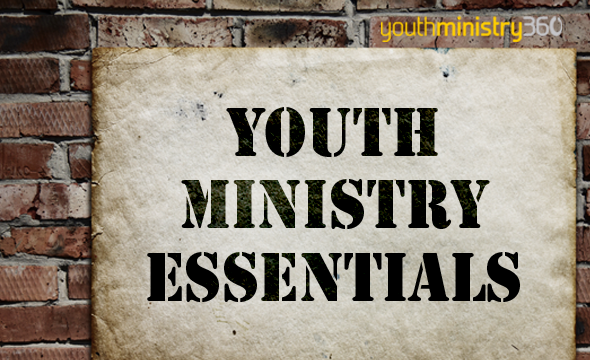
YM Essentials: The Boston Marathon Bombings: Dealing With National Tragedies
(See below this article for a list of links to articles fleshing out the terrible events surrounding the Boston Marathon.)
Yesterday’s horrific events at the Boston Marathon are touchstone days in our national conscience. They are days marked by unspeakable national tragedy. And though tragedy affects our communities each day, national tragedies, such as terrorist attacks, shootings, and natural disasters, provide a meaningful opportunity to help students grow in their understanding of God and His ways. In the process, I believe they grow closer to Him, to each other, and develop valuable empathy for others.
But none of this is possible if you ignore your chance to address these issues.
I will never forget the pastor of my previous church preaching to the congregation on the Sunday following 9/11. It was a powerful time. I vividly recall eating lunch with a friend the Monday after the sermon. I remember communicating to him what a meaningful message my pastor had preached. I asked if he was similarly moved by his pastor’s message. He replied that his pastor was doing a sermon series and simply preached the next sermon in the series. Of course, they prayed for the victims, but the pastor missed the moment to help his congregation process their feelings and connect the events with their faith.
I have never forgotten this encounter. It impressed upon me the importance of adapting our plans to address meaningful, and especially tragic, events that impact our society.
So, let me encourage you to consider adapting your plans and addressing the events in Boston the next time you engage your students.
While your chosen method of addressing these incidents will vary, here are some general guidelines that will help you in discussing tragedies like the one that happened in Boston.
Connect Evil With Sin
Help students see that God’s original plan for creation was for peace and harmony. And not just peace between God and people, but peace between people and the created world. Peace between people and animals. And peace between people and other people. When Adam and Eve sinned, they were choosing their own rule over God’s. And as a result, from that moment until now, there has been discord between people. Evil and violence is a result of sin. It is a result of humankind, not God.
God Acts To Rescue Us From Evil
Jesus is God’s answer to sin and evil. Through Jesus, God made a pathway for people to be saved from the consequences of evil. Even though evil may win in the moment, God has removed the long-term sting of evil’s consequences. There is no death in Christ, only life. Furthermore, God acts through people who have been transformed by Christ to spread Christ’s love and goodness in the world. So while evil is at work, good is at work as well. And good will win in the end. Always.
Allow Students To Express Emotion
Allow for a healthy expression of emotion. God is the creator of emotions. He can handle our anger, our questioning, our fear, and so on. Don’t ever discourage students from expressing these emotions. Instead, just as we see in countless examples in the psalms, encourage them to bring them to God, trusting Him to handle them in line with His character.
Allow Students To Ask Questions
We get scared by not having the answers. One of the redeeming things about a national tragedy such as this is that it gives you a more comfortable environment to NOT have the answers. For many, including me, the presence of evil and suffering is one of the great questions of their faith. While there are correct theological answers to these questions, they don’t often provide a source of comfort for the soul, especially the soul of those who grieve. In these cases, it’s OK to not have a tidy answer for every question. Sometimes we must trust in who God is and know that in the end, He will make all things right.
We wanted to link to a few thoughtful responses to the tragedies here.
We will expand this list as more becomes available. Please feel free to share your thoughts or links in the comment section below.
- Why The Boston Bombing Happened by Jonathan Brooker
- This World Is My Home by Adam Mearse
- Boston Massacre, Media's Response, And A Telling Imbalance by Walt Mueller
- The Ultimate Terrorist by Greg Stier
- The Connecticut Shootings: A Latter To My Children by Rebecca Reynolds (This is in response to the shootings in Newtown, but the takeaways are very helpful in dealing with any tragedy of this scale.)
- Marathon Marred by Fatal Bombings by Steph Martin
- Today (Like Everyday), We Pray For Our Enemies by Jon Huckins
- Tragedy in Boston: Roundup of Reactions from Pastors in the Area by Ed Stetzer
- Thy Kingdom Come, To Boston, To The World by Ed Stetzer (via RELEVANT)
- A Glowing Message Of Hope For Boston by Morgan Clendaniel
- Boston Marathon Explosions: A Personal Theological Response by Daniel Griswold
- Patriots’ Day by D. Scott Miller
- When Terrorism Comes Close-The Boston Marathon I’ll Never Forget by Tim Meier
- A Theology of Tragedy in Youth Ministry by Benjer McVeigh
- Praying For Boston by Steven Sheets
- God Is Still God, Even When We Grieve by Jen Bradbury




Leave a comment